How Often Do You Think about the Roman Empire? The 8 Movies about Ancient Rome
"How often do you think about the Roman Empire?" Recently, this seemingly innocent question has set the digital world abuzz. We decided to go further and delve into the history of cinema to find out how often filmmakers thought about the Roman Empire. Spoiler alert: a lot!

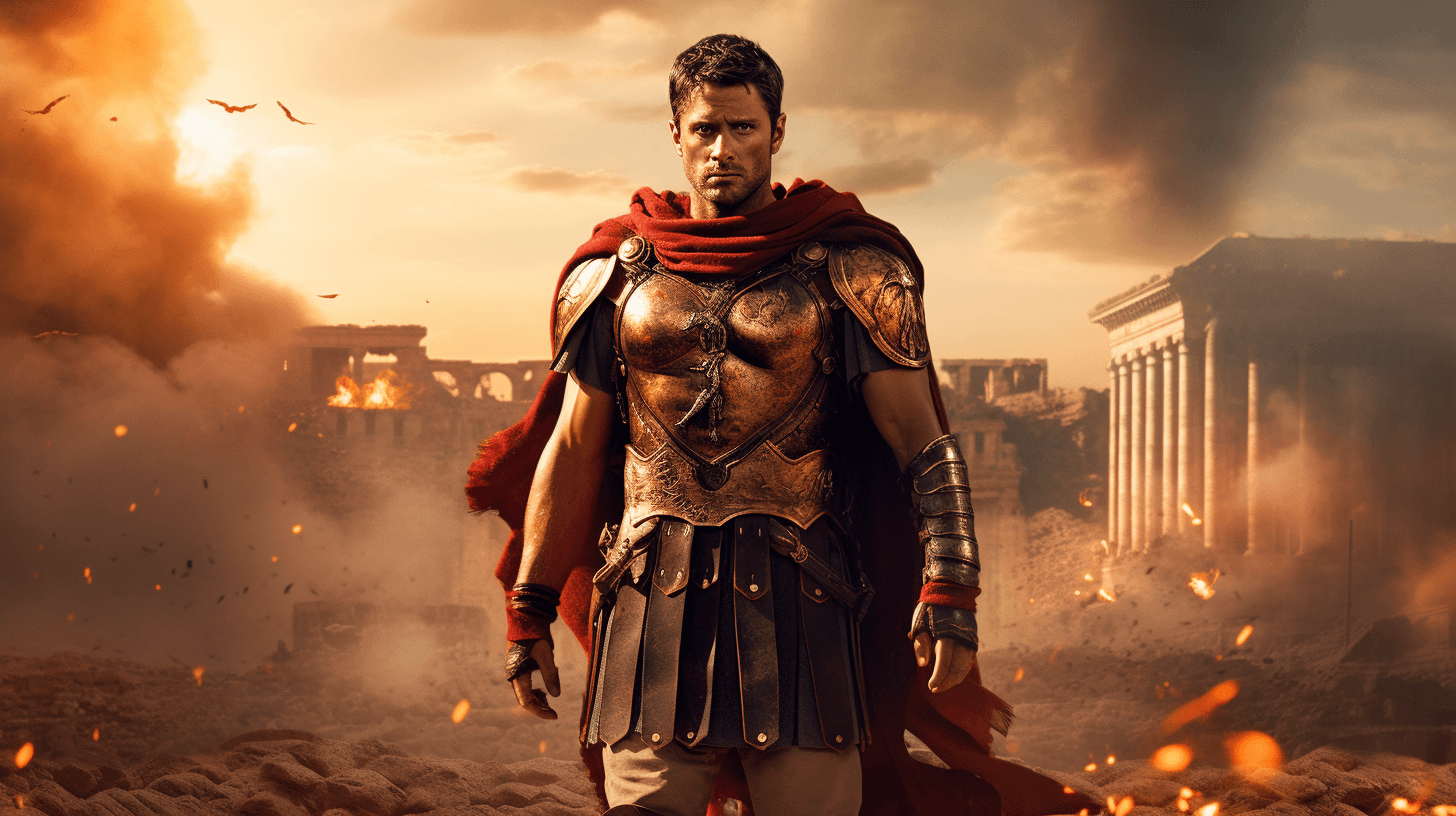
The Roman Empire, regarded as the epitome of ancient power and opulence, has left an indelible mark on the world of cinema. Its grandeur, historical richness, and timeless tales of ambition and conquest have inspired filmmakers for decades. Over the years, the Roman Empire has been the backdrop for a diverse array of films. These range from grand historical epics and thrilling gladiatorial battles to political dramas and epic love stories. The cinematic history of Rome is a rich tapestry woven with tales of emperors, warriors, and everyday citizens, each contributing to the ever-evolving narrative of this ancient world.
The Roman Empire, with its sprawling territories and iconic architecture, serves as a captivating canvas for filmmakers. From the monumental structures of the Forum to the awe-inspiring Colosseum, cinematic Rome representations have transported audiences to the heart of a bygone era.
One of the most compelling aspects of Rome in cinema is its historical portrayals. Filmmakers endeavor to capture the essence of Ancient Rome, whether by meticulously recreating historical settings or by exploring the intricacies of Roman society. These portrayals offer us a window into the lives, ambitions, and challenges faced by those who once walked the cobbled streets of this mighty empire.
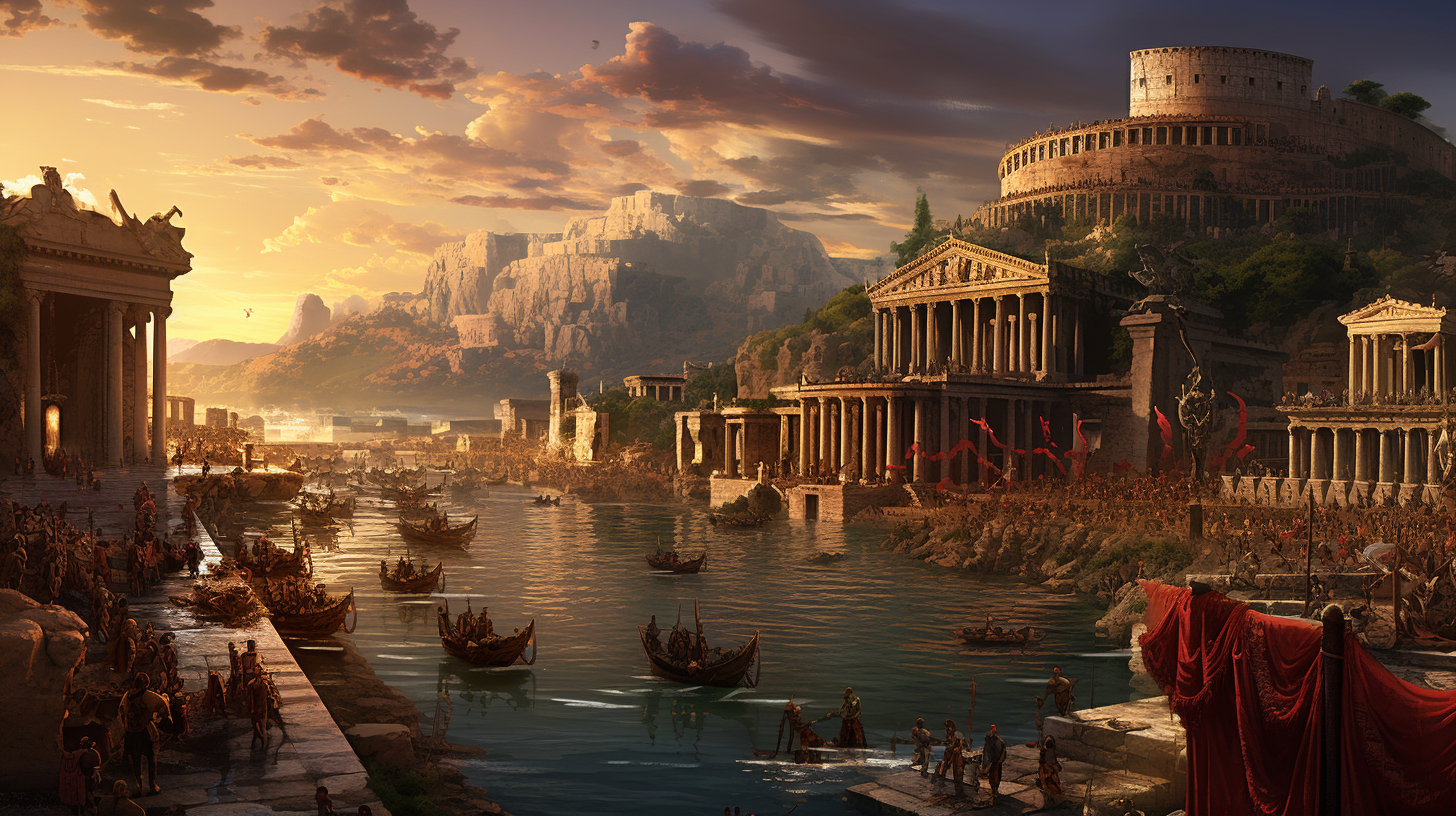
So, let’s journey back in time and explore the movies that bring the splendor and intrigue of the Roman Empire to life on the silver screen.
1. Gladiator (2000)⚔️
🎥 Director: Ridley Scott
🎬 Cast: Russell Crowe, Joaquin Phoenix, Connie Nielsen, Richard Harris, Derek Jacobi
⭐ IMDb Rating: 8.5/10
🏆 Awards: 5 Academy Awards, including Best Picture, Best Director, and Best Actor for Russell Crowe
📝 Synopsis: The film introduces us to Maximus, a Roman general and beloved leader of the legions, who finds himself thrust into the heart of a power struggle after the treacherous Commodus seizes the throne. It is a tale of revenge, honor, and the quest for justice ensues as Maximus, reduced to slavery, rises as a gladiator to seek retribution against the tyrant who betrayed him.
"Gladiator" has etched its name into cinematic history, primarily due to its heart-pounding action sequences that unfold within the magnificent Colosseum. The meticulous choreography and meticulous attention to every detail in these moments serve not just to entertain but to transport the audience right into the midst of electrifying gladiatorial battles.
Russell Crowe's portrayal of Maximus stands as a legendary achievement. His electrifying performance clinched him the Academy Award for Best Actor, cementing his place in cinematic history. Joaquin Phoenix, on the other hand, brought Commodus, a complex and morally enigmatic antagonist, to life. His portrayal of this power-hungry and psychologically tormented emperor goes beyond the traditional hero-versus-villain narrative, adding layers of depth to the story.
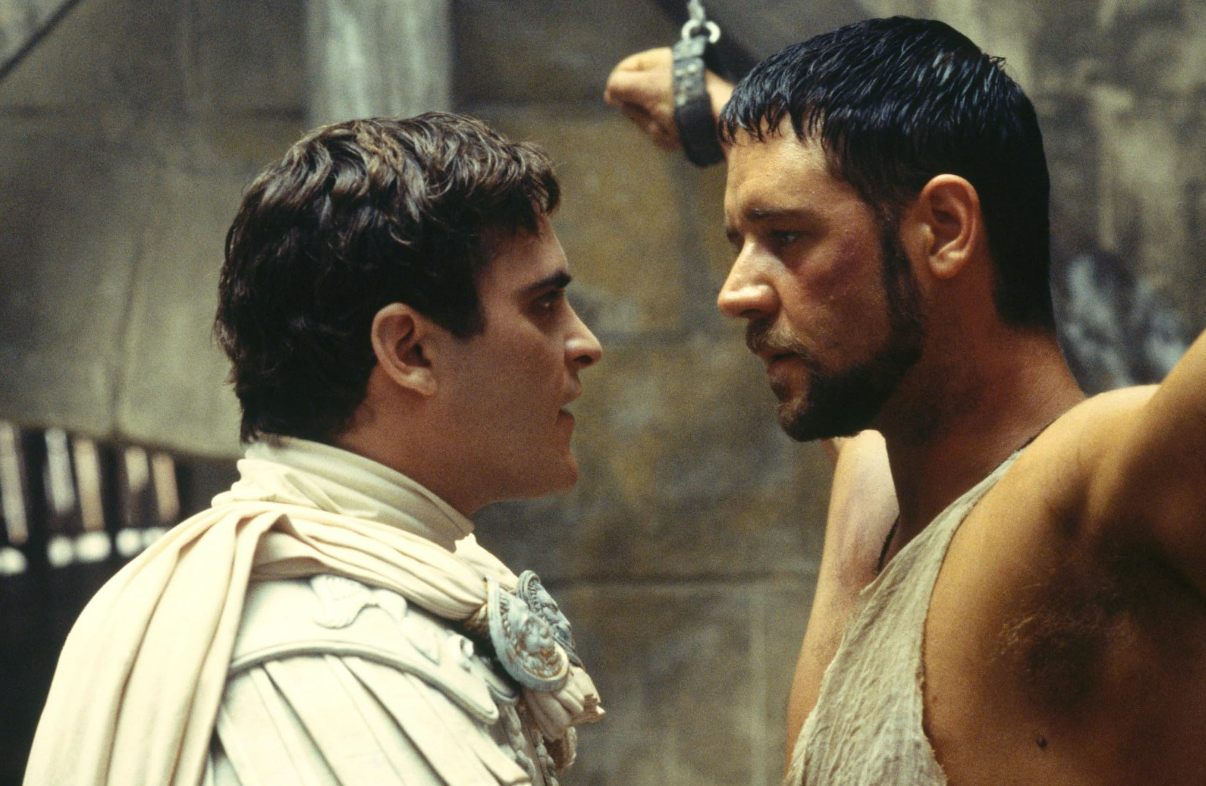
However, it's the film's visual splendor that demands attention. From the bustling streets of Rome to the colossal grandeur of the Colosseum, the production design and cinematography captivate, capturing the very essence of Ancient Rome in all its grandeur.
And then there's Hans Zimmer's hauntingly beautiful score for "Gladiator". It transcends mere music, embarking on an emotional journey of its own. Zimmer's musical compositions become a character within the film, seamlessly weaving into the narrative and elevating the overall cinematic experience.
"Gladiator" isn't just a box office hit; it's a cultural phenomenon. It stands as a cinematic triumph that continues to enthrall audiences with its larger-than-life spectacle, unforgettable characters, and a narrative that grips the soul. It invites us to journey back in time, to relive the pulse-pounding action and the intoxicating allure of Ancient Rome, all through the captivating lens of the silver screen.
Inspired by the legendary tale of Maximus?
With Filmustage, your own legendary story can come to life on screen.
2. Ben-Hur (1959)🏁
🎥 Director: William Wyler
🎬 Cast: Charlton Heston, Stephen Boyd, Jack Hawkins, Haya Harareet, Hugh Griffith
⭐ IMDb Rating: 8.1/10
🏆 Awards: 11 Academy Awards, including Best Picture, Best Director, and Best Actor for Charlton Heston
📝 Synopsis: The film introduces us to Judah Ben-Hur. We follow his transformation from a wealthy prince to a humbled slave, ultimately rising as a chariot racing champion to seek retribution against his former friend and newfound nemesis, Messala.
"Ben-Hur" is renowned for its thrilling chariot race sequence. This heart-pounding spectacle is a cinematic masterpiece, showcasing meticulous planning and execution that leaves audiences on the edge of their seats.
Charlton Heston's portrayal of Judah Ben-Hur is nothing short of iconic. His powerful presence and emotional depth bring the character to life, earning him accolades and a lasting place in cinematic history. But just like in Gladiator, the main villain here is also worthy of attention. Stephen Boyd's portrayal of Messala is a masterstroke in character complexity. As the film's antagonist, he adds depth to the story with a portrayal of a multifaceted character driven by ambition and rivalry.
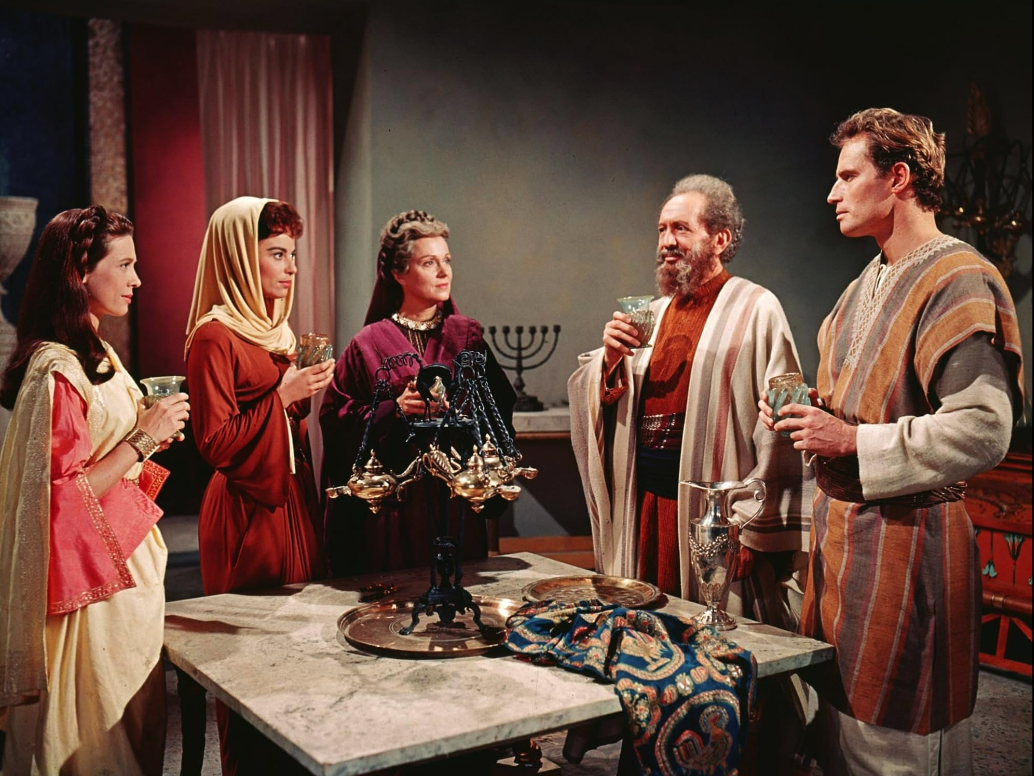
The film's production design meticulously recreates the splendor of ancient Rome. From the majestic chariot arena to the opulent palaces, the visuals transport viewers to a bygone era.
Miklós Rózsa's majestic and emotionally charged score is an integral part of "Ben-Hur". It enriches the film's narrative and heightens the emotional impact of the story.
"Ben-Hur" is a work of historical fiction, but it effectively captures the essence of ancient Rome. The film's depiction of Roman society, politics, and the grandeur of the era provides viewers with an immersive experience that resonates with the spirit of the times.
"Ben-Hur" has left an indelible mark on the realms of both cinema and popular culture. Its enduring popularity serves as a testament to its timeless storytelling, awe-inspiring visuals, and unforgettable characters. The film has inspired subsequent generations of filmmakers and stands as a cherished classic.
3. Spartacus (1960)🗡️
🎥 Director: Stanley Kubrick
🎬 Cast: Kirk Douglas, Laurence Olivier, Jean Simmons, Charles Laughton, Peter Ustinov
⭐ IMDb Rating: 7.9/10
🏆 Awards: 4 Academy Awards, including Best Cinematography and Best Supporting Actor for Peter Ustinov
📝 Synopsis: Spartacus is a historical drama that tells the story of the slave revolt led by Spartacus in 73-71 BC. His quest for freedom and justice unfolds amidst grand battles and complex relationships.
"Spartacus" was one of the most expensive films ever made at the time of its release, and the production values are still impressive today. The film features some of the most iconic action sequences in cinema history, such as the opening gladiatorial battle and the final battle against the Roman army.
"Spartacus" doesn't just focus on epic battles; it also delves into the emotional depth of its characters. Spartacus's relationships, especially with Varinia (Jean Simmons), provide a poignant counterpoint to the film's grand scale. Kirk Douglas played the role of Spartacus with an undeniably magnetic presence. His charisma, determination, and unwavering spirit breathe life into a character who becomes an enduring symbol of resilience and hope.
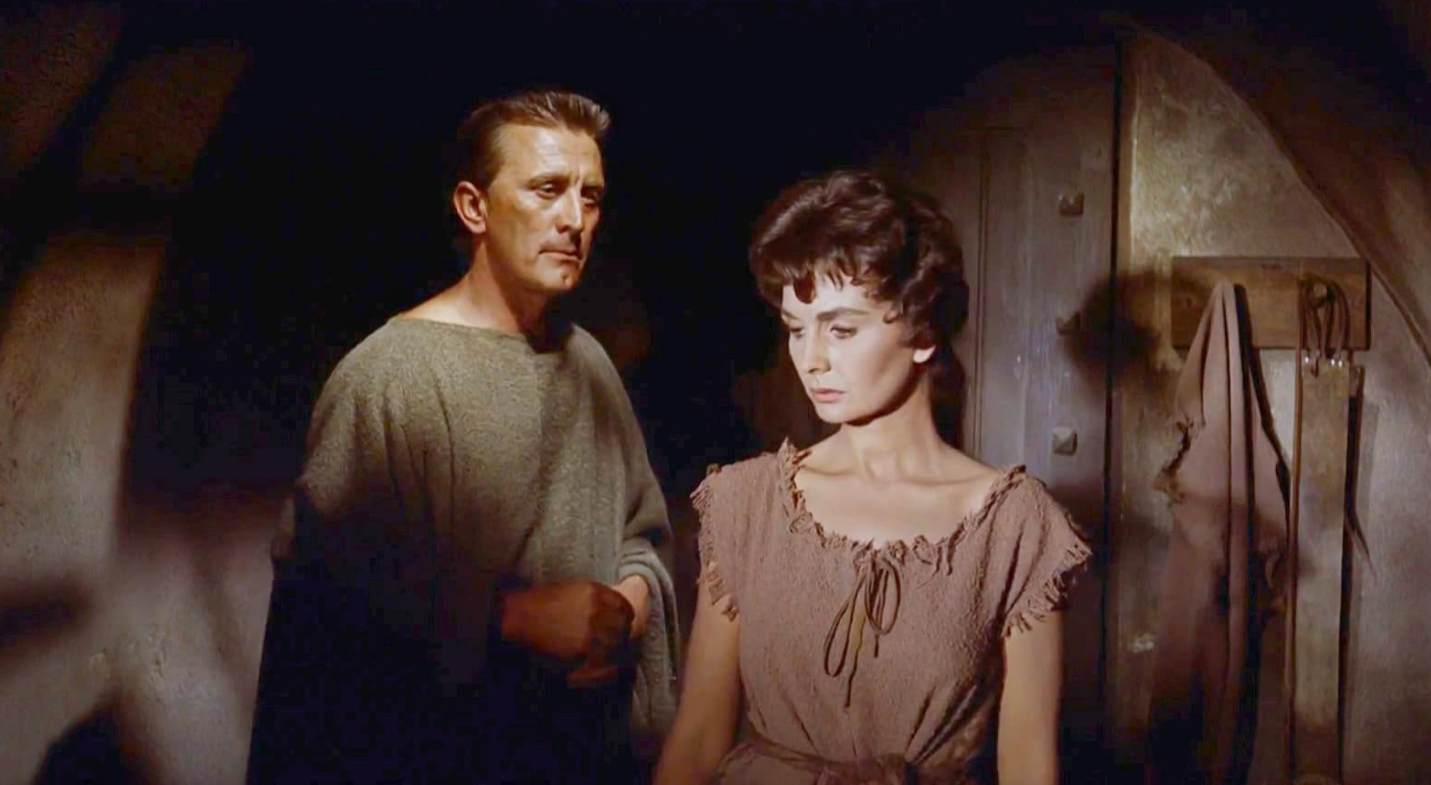
While "Spartacus" falls within the realm of historical fiction, it adeptly encapsulates the spirit of ancient Rome and the complexities of the slave rebellion. The film's portrayal of the harsh conditions faced by slaves and the complexities of Roman society provides a historically grounded backdrop.
"Spartacus" left an enduring impact not just on cinema but also on the broader cultural and political landscape. The film resonated with audiences during its time, and its themes of freedom and rebellion continue to be relevant today.
4. Agora (2009)🗺️
🎥 Director: Alejandro Amenábar
🎬 Cast: Rachel Weisz, Max Minghella, Oscar Isaac, Ashraf Barhom, Michael Lonsdale
⭐ IMDb Rating: 7.1/10
🏆 Awards: 7 Goya Awards, including Best Film and Best Actress for Rachel Weisz
📝 Synopsis: The film introduces us to Hypatia, portrayed with intelligence and grace by Rachel Weisz, a brilliant mathematician, philosopher, and astronomer in the Library of Alexandria. Set against the backdrop of religious conflict between Christians and pagans, "Agora" unfolds as a powerful narrative of intellectual pursuit, cultural clash, and the pursuit of knowledge.
"Agora" is a visual masterpiece, with meticulously crafted sets that recreate the grandeur of ancient Alexandria. The film's portrayal of the Library of Alexandria, the city's architecture, and celestial observations are visually breathtaking.
The film delves into the world of ancient philosophy, science, and religious conflict. It invites viewers to contemplate the clash between reason and faith, the pursuit of knowledge, and the sacrifices made in the name of discovery.
"Agora" sheds light on a lesser-known chapter of history, highlighting the significance of the Library of Alexandria and the cultural and scientific contributions of the ancient world.
This visually stunning and thought-provoking film stands as a testament to the enduring power of ideas and the intellectual legacy of the past.
5. Centurion (2010)🛡️
🎥 Director: Neil Marshall
🎬 Cast: Michael Fassbender, Dominic West, Olga Kurylenko, David Morrissey, Liam Cunningham
⭐ IMDb Rating: 6.3/10
📝 Synopsis: Centurion tells the story of a Roman centurion Quintus Dias who leads a small band of soldiers on a dangerous mission to rescue the wife of a Roman general. The centurion and his men must fight their way through hostile territory and battle barbarian tribes in order to complete their mission.
"Centurion" is a gritty and realistic historical action film. It doesn't hold back on portraying the brutality and harsh conditions of Roman Britain and immerses viewers in the unforgiving landscape and the brutality of ancient warfare.
The film's cinematography captures the rugged beauty of the Scottish Highlands, where it was filmed. The landscapes become an integral part of the narrative, reflecting both the perilous terrain and the indomitable spirit of the characters.
While "Centurion" is also a historical fiction, it draws inspiration from the Roman Empire's campaigns in Britain and the resistance of the Pictish tribes. The film captures the essence of ancient warfare and the challenges faced by Roman soldiers in a hostile land.
"Centurion" may not have achieved the same widespread recognition as some other Roman-themed films, but it has garnered a dedicated following for its intense action sequences and the compelling character of Quintus Dias.
6. The Fall of the Roman Empire (1964)🏛️
🎥 Director: Anthony Mann
🎬 Cast: Sophia Loren, Alec Guinness, Stephen Boyd, James Mason, Christopher Plummer
⭐ IMDb Rating: 6.7/10
🏆 Awards: Golden Globe for Best Original Score
📝 Synopsis: The film tells the story of the decline and fall of the Western Roman Empire, focusing on the reigns of the emperors Marcus Aurelius, Commodus, and Pertinax.
"The Fall of the Roman Empire" is the last of the classic Hollywood peplums. The film was a critical and commercial failure upon its release, but it has since been rediscovered by critics and is now considered to be a classic of the epic film genre.
The film is notable for its large scale and scope, as well as its star-studded cast. Sophia Loren is particularly luminous as Empress Faustina, and Alec Guinness gives a powerful performance as Emperor Marcus Aurelius. The special effects are also impressive, particularly the scenes of the Roman army in battle.
The film captures the political and societal dynamics of the era while presenting a dramatized narrative. While it may not be as historically accurate as some other films about the Roman Empire, it is a visually stunning and entertaining film that is sure to please fans of the genre.
7. Caligula (1979)👑
🎥 Director: Tinto Brass (initially), later involvement by Bob Guccione
🎬 Cast: Malcolm McDowell, Helen Mirren, Peter O'Toole, John Gielgud, and many adult film stars
⭐ IMDb Rating: 5.3/10
📝 Synopsis: "Caligula" is a historical drama that delves into the life and reign of the Roman Emperor Gaius Julius Caesar Augustus Germanicus, commonly known as Caligula. The film explores his descent into madness and depravity as he wields absolute power in Ancient Rome. It portrays his sexual excesses, cruelty, and the moral decay of his court.
"Caligula" is perhaps the most daring film in our top. It is infamous for its explicit sexual content, including scenes of orgies, violence, and debauchery. It sparked outrage and was banned in several countries upon its release. The film's production was tumultuous, with disputes between the director Tinto Brass and the film's producer Bob Guccione. Guccione later re-edited the film to include explicit scenes, leading to further controversy.
While "Caligula" is inspired by historical events and figures, it takes significant liberties with historical accuracy to emphasize the sensational and salacious aspects of Caligula's reign.
"Caligula" is a film that pushes the boundaries of mainstream cinema by combining historical drama with explicit content. Its provocative nature, unique casting choices, and tumultuous production have made it a subject of fascination and debate among film enthusiasts and scholars. Despite its notoriety and initial critical panning, "Caligula" has garnered a cult following over the years. Some viewers appreciate it for its audacity and as a unique artifact of 1970s cinema.
8. Pompeii (2014)🌋
🎥 Director: Paul W.S. Anderson
🎬 Cast: Kit Harington, Carrie-Anne Moss, Jared Harris, Adewale Akinnuoye-Agbaje, Kiefer Sutherland
⭐ IMDb Rating: 5.5/10
📝 Synopsis: "Pompeii" tells the story of a young slave and a Roman aristocrat who fell in love in the days leading up to the eruption of Mount Vesuvius in 79 AD. The couple must fight to survive as the city is destroyed by the volcano.
"Pompeii" draws inspiration from the real-life eruption of Mount Vesuvius and captures the essence of Roman society and the impending catastrophe that befell Pompeii and Herculaneum.
The film features a number of impressive action sequences, including a battle between gladiators and wild animals, a chariot race, and a volcanic eruption. The film's visuals are also stunning, with the city of Pompeii being brought to life in great detail.
However, the plot and characters have been criticized for being underdeveloped. The story is predictable and the characters are one-dimensional. Additionally, the film's historical accuracy has been questioned. At the same time, it successfully captures the spirit of the Roman Empire during one of the most devastating catastrophes in human history. Therefore, if the plot is not essential to you and you value more the visuals and atmosphere of Ancient Rome, “Pompeii” may well become your film for the evening.
Bonus! 🌟😆
The Roman Empire was a serious period of conquest, political intrigue, and ancient luxury. However, this does not mean that all films dedicated to this period were of the same seriousness. If you want to delve into the reign of Caesar for a good laugh, enter "Asterix and Obelix", a franchise that brings a whimsical and hilariously anachronistic take on ancient Rome.
The "Asterix and Obelix" franchise, created by René Goscinny and Albert Uderzo, began as a beloved French comic series in 1959. It quickly became a cultural phenomenon and eventually made its way to the silver screen. The series revolves around two Gauls, the diminutive but feisty Asterix and the superhumanly strong Obelix, who resist Roman occupation in their village. With the help of a magic potion brewed by their druid, Getafix, they embark on a series of humorous adventures that take them all over the Roman world.

What makes "Asterix and Obelix" stand out is its blend of historical satire, slapstick humor, and clever wordplay. The franchise has seen several animated and live-action adaptations, with the live-action films being particularly well-received for their over-the-top humor and impressive casting, starring Gérard Depardieu and Christian Clavier.
"Asterix and Obelix" have become cultural icons in Europe and beyond. Their adventures have been translated into numerous languages, and their irreverent take on history continues to charm audiences of all ages.
So, while we've delved into epic Roman dramas, remember that there's a place for humor in the world of ancient Rome, thanks to the timeless antics of Asterix, Obelix, and their village of indomitable Gauls.
As you've seen, the Roman Empire has inspired countless stories of power, ambition, and adventure. Now, it's your turn.
Closing Credits: Why the Roman Empire is Always Timeless
As our cinematic expedition through the Roman Empire comes to a close, it's abundantly clear that the significance of the Roman Empire in film extends far beyond mere entertainment. It serves as a captivating portal into a bygone era, where ambition, honor, love, and power played out on an epic stage. The meticulous cinematic representations of Rome have allowed us to breathe life into history, walking alongside gladiators, emperors, and everyday citizens.
From the grandeur of historical epics to the intimacy of love stories set against the backdrop of ancient Rome, this cinematic journey has revealed the endless storytelling possibilities that this era offers. It's a testament to the enduring fascination with the Roman Empire's tales of triumph and tribulation.
We bet you're definitely thinking about the Roman Empire right now! 😋
🎧 This article is available on Spotify!
From Breakdown to Budget in Clicks
Save time, cut costs, and let Filmustage’s AI handle the heavy lifting — all in a single day.